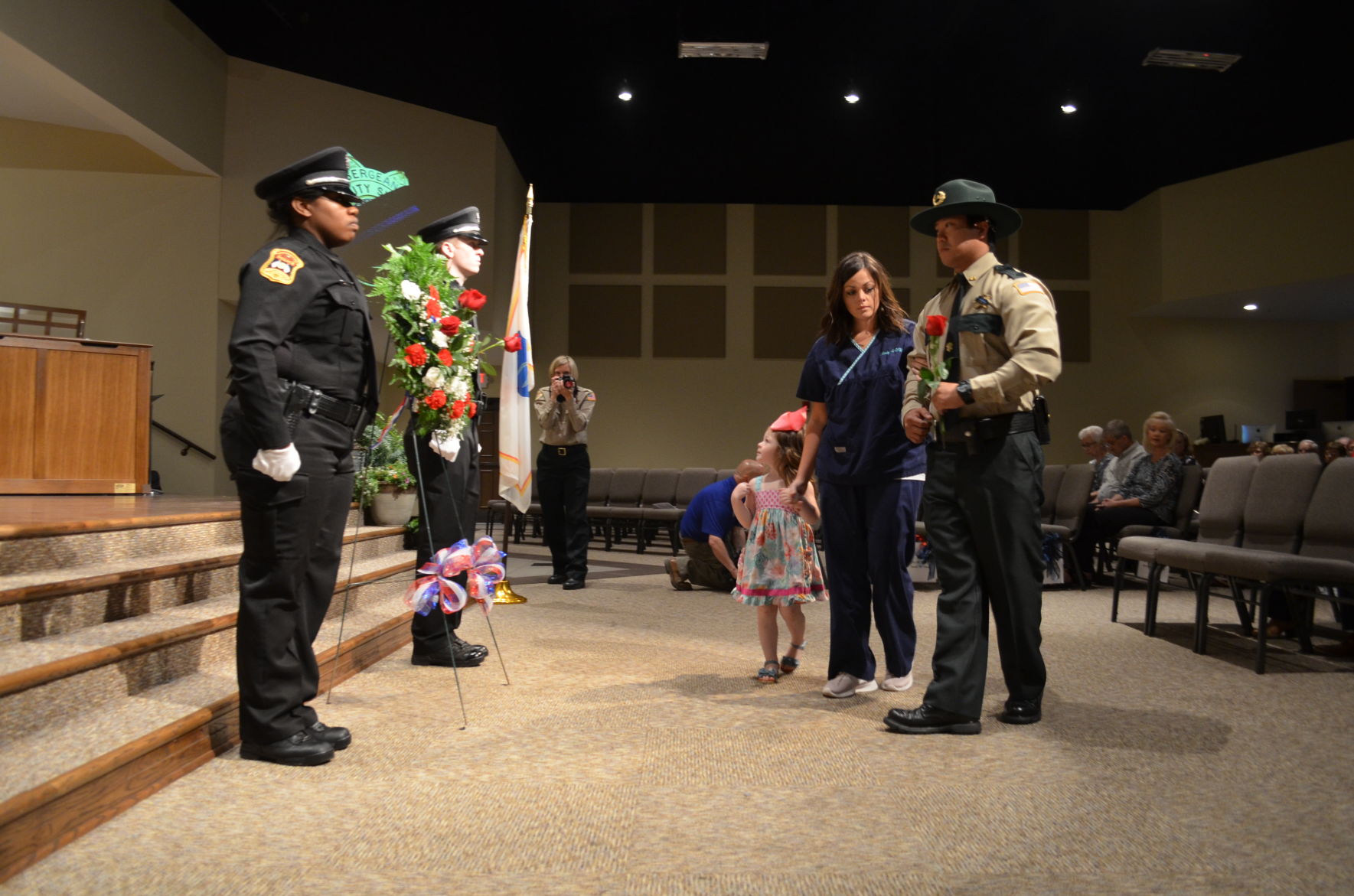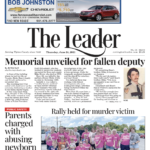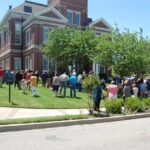

Mike Rose has never forgotten the call.
“It was a Monday night, just after 6 o’clock … My mom called and said they were flying Ricky to The Med … and our lives changed.”
Initially, it was called a “terribly bizarre accident” by then-district attorney Paul Summers.
Mike’s only brother, Ricky, a narcotics investigator, had been shot in his office at the Tipton County Sheriff’s Office, which was then at the corner of Hwy. 51 and Valley Avenue.
Summers said preliminary reported indicated the wound to the right side of his forehead had been self-inflicted.
“I’ll never forget when Susan and I pulled up at The Med, the Wing was sitting down and I just looked up and said, ‘My bubba’s on that helicopter …’” he said through tears. “And from there, I went through pure hell.”
The story, according to then-sheriff Wayne Baskin, was that Ricky was cleaning a .380-caliber pistol belonging to Deputy Jimmy Hicks on the night of Monday, Nov. 28, 1988, when the gun went off and struck Ricky in the head.
Officers reported Hicks had stepped into another room when the gun fired, the Nov. 30, 1988 Leader reported.
Ricky’s girlfriend, Donna Sutphin, reportedly testified months later she was on the phone with him when she heard Rose tell someone, “You’d better put that gun down before I hurt you,” following by a clicking noise.
Ricky died the following morning. He had been in narcotics for exactly a year.
At the time, Hicks and Baskin were under a federal investigation involving the agency’s training practices. Mike said Ricky was supposed to meet with investigators the next morning.

By Dec. 19, Hicks had been charged with involuntary manslaughter in the shooting death of his partner. He was suspended with pay pending court action and released from jail on his own recognizance.
“The (TBI investigation) indicates Mr. Hicks shot Mr. Rose and at this time there is probable cause to believe that the shooting was a result of gross negligence,” Summers said following the arrest.
The charges were dismissed in March 1989, the judge ruling the state had not provided sufficient proof of gross negligence despite Hicks’ statement he “pulled the slide back to check for a chamber round,” the gun going off when the slide was released.
Hicks was later found guilty of criminally negligent homicide.
After an eight-count federal indictment, Baskin spent three years in prison for extortion and mail fraud.
Three decades later, Mike says he tries to focus on how his brother lived for that is more important than the way in which he died.
“He was just so … full of life and everybody that knew him they just loved him because of his personality. He loved to hunt, he loved his friends, you know. He grew up with Clay Millican and Robert Jackson and guys like that. To sum it all up, he loved life and, unfortunately, he just didn’t get to enjoy it.”
When Ricky died, Mike was in the Shelby County Reserve Training Academy and lived at Hickory Hill. Mike said he wasn’t aware of what all was going on behind the scenes here.
After he lost his brother, he wanted to continue Ricky’s fight, he says.
“He went into narcotics and, after he died, I felt like that’s what I was supposed to do. I was supposed to pick the torch up and keep going.”
He wonders what life would have been like for Ricky had he not been killed.
“He’s got a daughter that he never saw … (his) wife was pregnant with her and I don’t even think he knew it, from what we gather. Now he’s got three grandkids, too, and I just wondered what life would have been like with him. I’ve thought it over and over again.
“There’s just no way to describe the pain other than looking back on the good stuff, the good memories … and I wished I could have spent more time with him. Of course, had I known … I would.”
Mike says Ricky’s death not only left him an only child, but it tested the family’s faith and had a lasting impact.
“It took such a toll on my mom and dad. It was devastating. Her faith is what got her through. She knew she was gonna see Ricky again … he had gotten saved about 6 or 8 months before he was killed … but it took such a toll. Mama said, ‘We’re not supposed to bury our kids.’ She was such a godly woman and had faith like a rock. Daddy just never was the same.”
Mike gets emotional when he talks about being the only one left of his immediate family.
“Now everybody’s gone and I’m just standing here like an oak, dealing with my own issues with my own family. That’s the way it’s supposed to be, I guess. God gives me the strength to get through every day. People with no faith, I don’t know how they make it.”
He still questions why God took Ricky instead of him.
“Why couldn’t it have been me? Why did you take the good one? You could have taken me and I’d have never been missed … he had a whole life ahead of him and so many things that he could do and never got the opportunity to do because his life was taken away from him.”
Each year, Ricky is remembered during the annual law enforcement memorial as well as the Ricky Rose Memorial Shoot.
For Mike, the pain of losing his only brother still runs deep.
“Thirty years is a long time. I guess you’re supposed to be over it in 30 years, but that’s something I don’t know … everybody grieves in their own time and way …”






Leave a Reply